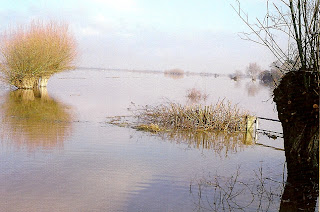“Thoughtful change” and “we need to be careful not to spook investors” as well as “we need to get it right” were key messages from the Minister for Natural Environment Richard Benyon’s keynote speech last night at the British Water House of Lords reception. Roughly translated this means that we should not expect significant new policies in the water and environment White Papers due this summer.
It does seem at last that the message on how much harm the five year regulatory cycle inflicts on the water sector is getting through. Water company Chief Executives alongside key suppliers all lined up together to make this message very clear. The Minister did promise action on this. But it is equally clear that there is firm support for having an independent regulator. All the positive lobbying by British Water backed up by hard quantification of the cost and some imaginative ideas on possible solutions have had the desired effect. It is equally clear that there is firm support for having an independent regulator.
The climate has changed. Consultation is now key in Government and there is real opportunity to shape the future direction of the water industry. But is does require a real commitment to engaging with Government and senior civil servants. and actively working to shape the forthcoming white paper. The water sector can learn a lot from how effectively other sectors have managed this.








